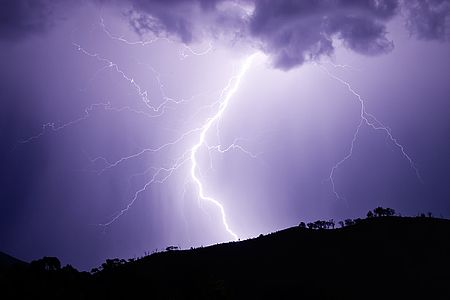
Posted by Ted Feldpausch
26 October 2020We are seeking qualified and motivated candidates to pursue a PhD studying how lighting affects tree mortality, carbon dynamics, and forest composition in tropical forests. Applications for the NERC GW4+ project are open, with a closing date of 16:00 on Friday 8th January 2021.
The research is based in Geography at the University of Exeter under the supervision of Dr Ted Feldpausch, Dr Tim Hill, Dr Lucy Roland, and with Prof Manu Haddad at the School of Engineering, Cardiff University.
Project Background:
Tropical forests are one of the most important and diverse ecosystems on Earth. However, recent research has revealed an increase in the rate of tropic tree mortality, with the consequence that the strength of the carbon sink provided by tropical forests is reducing (Brienen, 2015). It is therefore vital that we understand why tropical trees die.
We know lightning kills trees (Mäkelä, 2009; Yanoviak 2020) and is most powerful and frequent in the tropics (Cecil, 2014). Furthermore, with climate change, lightning strikes are likely to get more powerful and frequent. If all the trees struck by lightning died, it would indicate that lightning was a major factor controlling tropical tree mortality rates and an important control on forest dynamics and structure. However, there is no direct measurement of lightning induced tree mortality in the tropics. Working in tropical forests in Ghana, you will help address this huge knowledge gap.
Project Aims and Methods:
AIMS: In this project, you will join an interdisciplinary group of tropical ecologists, physicists and electrical engineers who have been recently funded to undertake the first ever systematic study into lightning-induced tree mortality. The team has developed a novel sensor that allows lightning strikes on trees to be studied for the first time. You will join this team and participate in field campaigns at tropical forest field sites in Ankasa (Ghana).
Your project aims could address the following research questions:
Q1: Which trees are more likely to be struck by lightning?
Q2: Which trees are more likely to survive a lightning strike?
Q3: How does lightning influence the ecology and carbon balance of tropical forests?
More info and to apply at the University of Exeter funding database: http://www.exeter.ac.uk/studying/funding/award/?id=4029